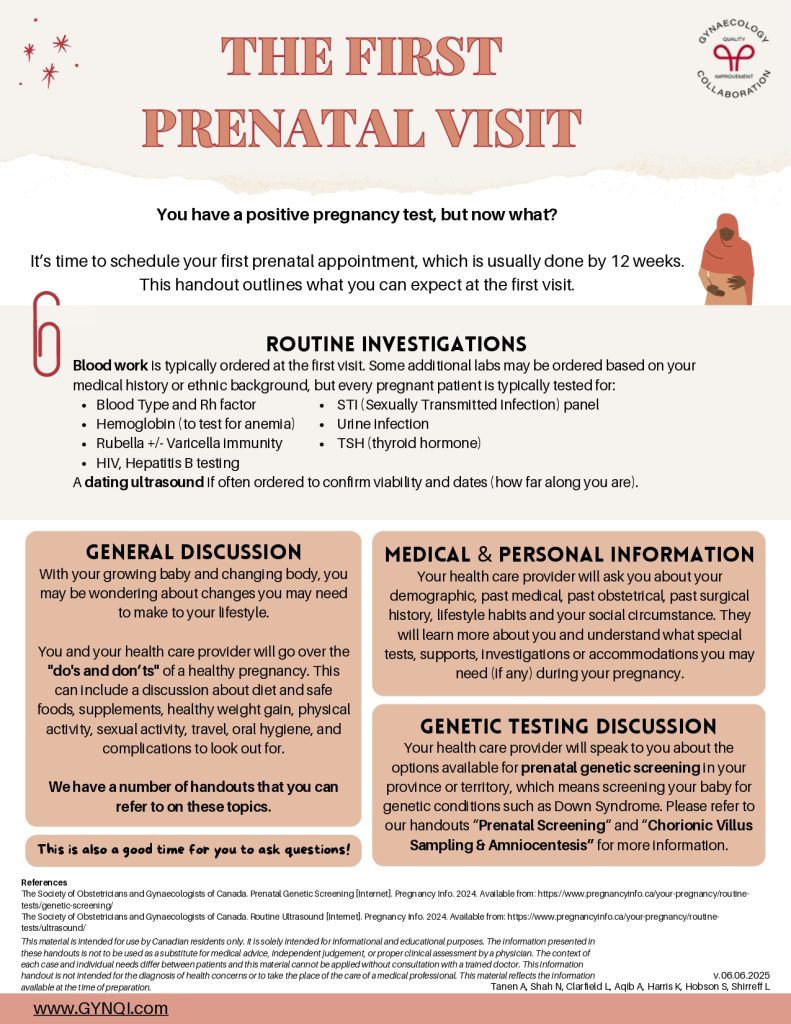
The First Prenatal Visit
You have a positive pregnancy, but now what?
It’s time to schedule your first prenatal appointment, which is usually done by 12 weeks. This handout outlines what you can expect at the first visit.
Routine Investigations
Blood work is typically ordered at the first visit. Some additional labs may be ordered based on your medical history or ethnic background, but every pregnant patient is typically tested for:
- Blood type and Rh factor
- Hemoglobin (to test for anemia)
- Rubella ± Varicella immunity
- HIV, Hepatitis B testing
- STI (Sexually Transmitted Infection) panel
- Urine infection
- TSH (thyroid hormone)
A dating ultrasound is often ordered to confirm viability and dates (how far along you are).
General Discussion
With your growing baby and changing body, you may be wondering about changes you may need to make to your lifestyle.
You and your health care provider will go over the “do’s and don’ts” of a healthy pregnancy. This can include a discussion about diet and safe foods, supplements, healthy weight gain, physical activity, sexual activity, travel, oral hygiene, and complications to look out for.
We have a number of handouts that you can refer to on these topics.
Medical & Personal Information
Your health care provider will ask you about your demographic, past medical, past obstetrical, past surgical history, lifestyle habits and your social circumstance. They will learn more about you and understand what special tests, supports, investigations or accommodations you may need (if any) during your pregnancy.
Genetic Testing Discussion
Your health care provider will speak to you about the options available for prenatal genetic screening in your province or territory, which means screening your baby for genetic conditions such as Down Syndrome. Please refer to our handouts “Prenatal Screening“ and “Chorionic Villus Sampling & Amniocentesis” for more information.
This is also a good time for you to ask questions!



